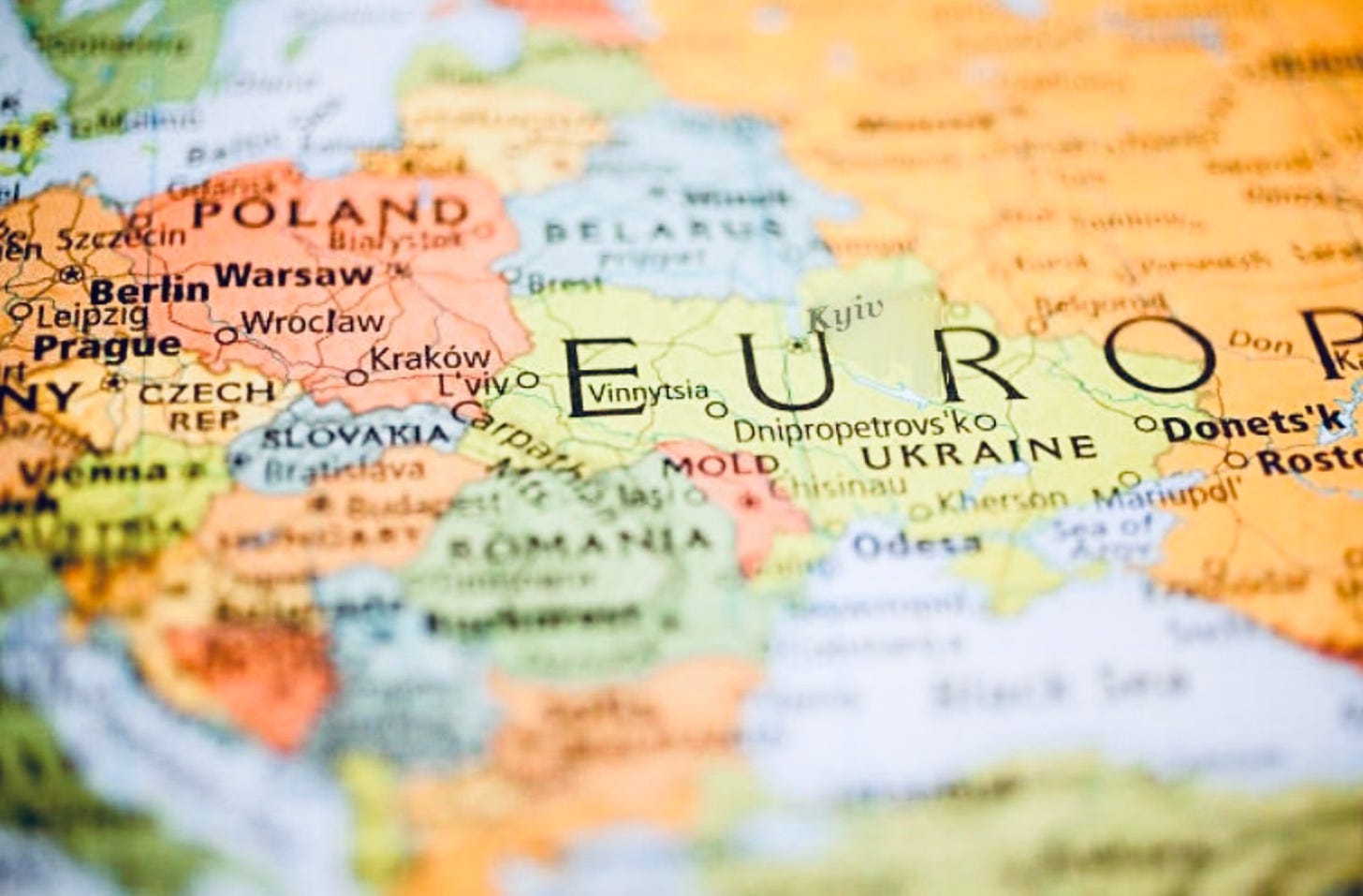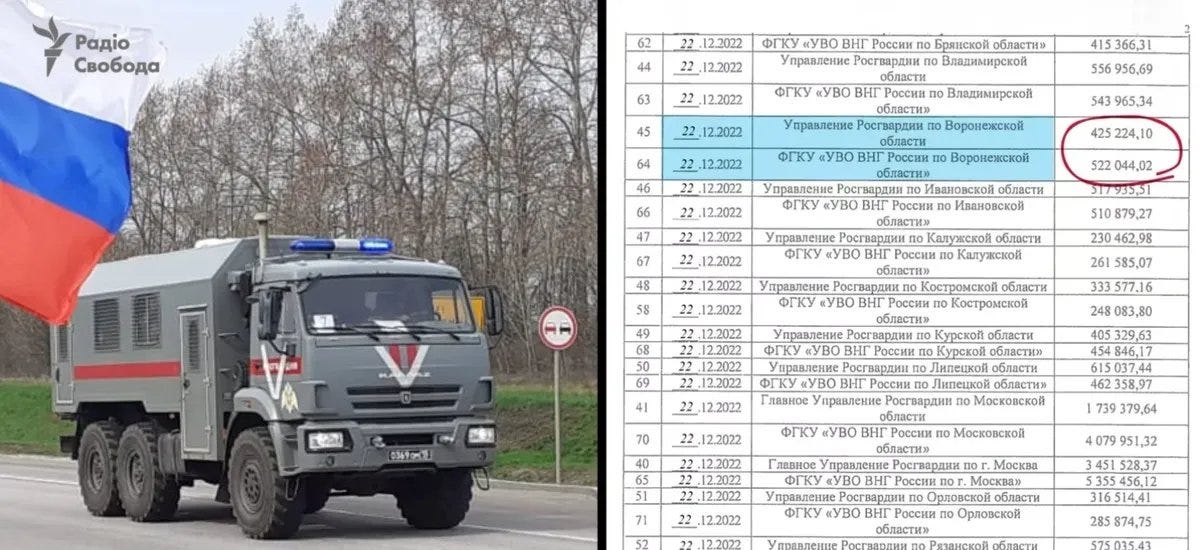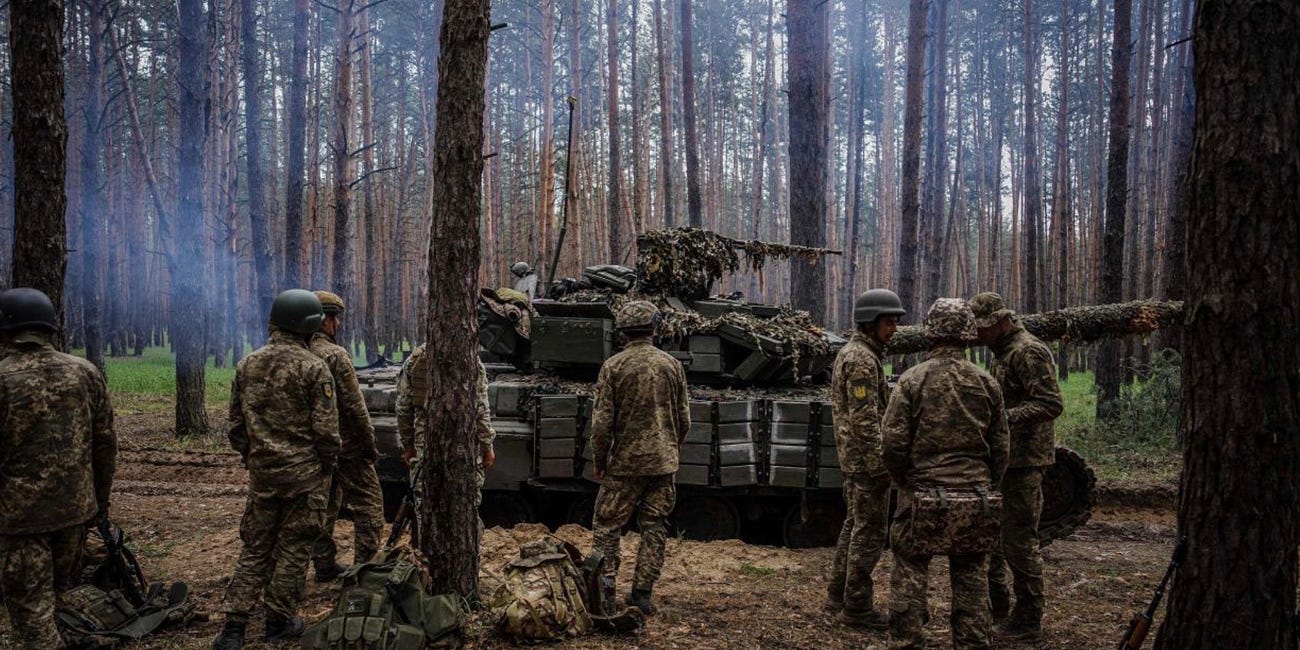Russia’s Defense Minister Urges Faster Weapons Deliveries, Suggesting Stockpiles Are Depleted
Russia’s defense minister, Sergei Shoigu, called on Tuesday for quickly doubling Russian production of guided missiles and speeding up the replenishment of other weapons and military equipment needed for the war in Ukraine.
The defense minister’s remarks are the latest in a series of statements by senior officials, starting with President Vladimir V. Putin, that suggest the Russian arms industry is struggling to keep pace with the demands of the war.
Mr. Shoigu singled out the arms manufacturers as crucial to the success of the “special military operation” in Ukraine, which Russia avoids calling a war.
Read More:
https://www.nytimes.com/live/2023/05/02/world/russia-ukraine-news
Railroad blown up in Bryansk region for the second time in two days
In the Bryansk region, unidentified people blew up the railway tracks, the 112 telegram channel reports. As a result, twenty wagons of a freight train derailed.
Later, Russian Railways confirmed to RBC that the wagons derailed. According to a company representative, it occurred as a result of "illegal interference by unauthorized persons in the work of railway transport." According to preliminary information, there were no casualties.
The incident occurred at 19:47 on the non-electrified single-track section Snezhetskaya - Belye Berega, the Russian Railways press service specified. The movement of trains on the site has been suspended. Firefighters are working on the spot, two recoveries and one fire train were sent there.
“An unidentified explosive device went off in the area of the Snezhetskaya railway station. There were no casualties. As a result of the incident, a locomotive and several wagons of a freight train derailed. All operational services are working on the spot,” Governor of the region Alexander Bogomaz wrote in his telegram channel.
What exactly was transported by the train is not officially reported.
According to the SHOT and Baza telegram channels close to the security forces, three explosions were heard. The composition of 70 wagons followed from Bryansk to Karachev.
Sulfur and saltpeter spilled from the overturned wagons, writes Baza. According to the channel, employees of the Ministry of Emergency Situations cool the fallen cars and spilled substances. Some of the wagons were empty, while others also carried scrap metal.
The day before, due to the undermining of the railway track, a train derailed in the Unechsky district of the Bryansk region. According to Baza, it was a train with 60 wagons loaded with oil products and lumber. 7 wagons overturned. Two men were caught on CCTV cameras, they were wanted on suspicion of sabotage.
Later, on May 2, the telegram channel Mash wrote that the police allegedly prevented another sabotage on the railway tracks in the Bryansk region. It was planned to be carried out on the 77th kilometer of the Krasny Rog - Pochep section, the publication reported. However, a railroad worker noticed digs under the tracks, where it was planned to plant an improvised explosive device. When the man reported this to the police, the security forces cordoned off the site, but they could not find the explosives.
Polskie Radio: Polish PM says Poland will not be intimidated by Russian threats
Polish Prime Minister Mateusz Morawiecki said Russian threats should be taken seriously but will not intimidate Poland, Polskie Radio reported on May 2. His comments respond to the propagandist attacks on the Polish Ambassador to Russia.
On April 30, Pavel Astakhov, former Russian children's rights commissioner, alleged that Poland violated the Vienna Convention by taking over the building that was a school for Russian diplomats’ children in Warsaw.
At Russian propagandist Vladimir Solovyov’s show, Astakhov also referenced the protesters dousing the Russian Ambassador to Poland Sergey Andreev in red paint during a wreath-laying ceremony commemorating Red Army soldiers last year.
“I was waiting to see whether they will find Poland’s Ambassador floating in Moskva River,” Astakhov said. He said his expectations stemmed from his idea of "retaliatory measures for unfriendly actions."
Morawiecki said the incident shows Russia as “a country that blackmails, threatens, tries to force decisions, in this case, made by an independent Polish court.”
Attempted to blow up the Prosecutor General of Bulgaria after the start of the investigation on sanctions against Russia
On the way to the cortege of the Prosecutor General of Bulgaria, Ivan Geshev, a bomb was detonated. As Deputy Chief Prosecutor Borislav Sarafov told the Bulgarian National Television, victims were avoided thanks to a happy coincidence.
According to Safarov, an explosive device was planted on the highway between Sofia and the city of Samokov, it contained about 3 kg of TNT and damaging elements. A crater with a diameter of about 3 m and a depth of about 40 cm formed at the site of the explosion.
Geshev was driving towards Sofia in order to go from there to Turkey. Before that, he stopped by for a meeting with junior prosecutors in the Samokov region. The explosion occurred at the turn, where it is necessary to slow down. According to Safarov, the explosive device was planted in such a way as to kill Geshev, and not to intimidate the authorities.
The attempt to assassinate the chief prosecutor was regarded as a terrorist act. The case is being handled by employees of the Sofia city prosecutor's office, assisted by the police. The section of the highway in the area of the explosion will be closed until the end of the investigation.
Before the trip, Geshev demanded that government officials report on how the country is implementing EU sanctions against Russia. “The prosecutor’s office is asking the Council of Ministers and all ministries and departments participating in the work of the coordination group [on Russian sanctions] for information on what specific measures and actions have been taken, what decisions have been issued in connection with the imposed sanctions,” Euractiv quotes a statement from the prosecutor’s office.
As the news agency reported back in February, the Bulgarian authorities did not impose any restrictive measures against Russian citizens and companies included in the EU sanctions list. At the same time, there are already almost 1,400 Russians and more than 170 companies on the list, as well as relatives and legal entities associated with them. In April 2022, the journalists of the Bird.bg investigative project pointed to the persons on the EU “black lists” who own Bulgarian real estate. Among them are relatives of Sergei Chemezov, the general director of Rostec and a member of the bureau of the Supreme Council of United Russia; Maxim Topilin, a State Duma deputy who previously held various positions in the government; Vladimir Pligin; State Duma deputy from United Russia (sanctions were introduced against him back in 2014); Deputy of the State Duma from the "Fair Russia" Alexei Chepa and others.
Radio Liberty reported an explosion in Crimea. The head of the annexed Sevastopol announced the "air defense training"
Explosions were heard in Sevastopol on the evening of May 2, local telegram channels reported. The head of the annexed city, Mikhail Razvozzhaev, said that “loud sounds in the city center are preventive work within the framework of the EITI and the training of our air defense systems.”
Radio Liberty geolocated the site of the explosion from photographs - this is a former training base for border guards in the area of the Jabanak gully near the village of Shkolnoye, a few kilometers from Simferopol airport. The cause of the explosion and other details of what happened are still unknown.
The authorities of the annexed Crimea regularly report drone attacks on various objects, including in Sevastopol. So, for example, Mikhail Razvozzhaev on the evening of May 1 announced two downed drones - on the way to Sevastopol Bay and on land.
Schemes: Russian (sanctioned) oligarch Mikhail Fridman's company provides car insurance for National Guard soldiers who fight in Ukraine War
The research project has found contracts signed by Fridman's company and the National Guard on the Russian state procurement website.
“Over the past five years, the National Guard has become one of the biggest state contractors of AlfaInsurance's services. Its central division signed contracts with Fridman's company worth 100 million rubles (€1.15 million). And in total in Russia, no less than 280 million (€3.2 million),” the investigation says.
The journalists have also managed to find out that the units of the Russian Guard that signed contracts with AlfaInsurance are taking part in the Ukraine War. Investigators found photographs of military equipment on the Internet that were published in the media with the captions “Russian Guard soldiers are returning home,” and then they checked the number plates in the state register of car owners. Some of them belonged to units that contracted with AlfaInsurance.
Screenshot: Skhemy
Fridman's company provides compulsory insurance to the security forces. In case of a car accident, the organization has to bear the cost of car repairs worth up to 400,000 rubles (€4,600), and also to cover the costs of paying compensation to victims in the amount of up to 500,000 rubles (€5,725).
The journalists contacted the AlfaInsurance company and were told that the compulsory insurance is not yet valid in the occupied territories of Ukraine. “The information we have is that it is not valid until 1 January 2024. And after that, nobody knows how the hostilities will go,” the company's call center said.
It was revealed earlier that Mikhail Fridman had persuaded many Russian oppositionists to sign letters to the European Commission with a request to lift sanctions against the leaders of Alfa Group. One of those letters was published on 8 March by Alexey Venediktov, former editor-in-chief of Echo of Moscow.
Discreetly, Berlin Confronts Russian Spies Hiding in Plain Sight
For years, Germany seemed to tolerate even flagrant Russian operations on its soil. But a new Cold War-like chill has now made the snooping difficult to ignore.
Every day as he settles into his desk, Erhard Grundl, a German lawmaker, looks outside his office window into the embassy he knows may be spying on him.
“I come into the office, and on a windy day, I see the Russian flag waving. It feels a bit like Psalm 23: ‘You prepare a table before me in the presence of my enemies,’” he said, chuckling. “I’m not religious, but I always think of that.”
In the shadow of Berlin’s glass-domed Reichstag, beyond the sandstone columns of Brandenburg Gate, German parliamentary buildings sit cheek-by-jowl with Russia’s sprawling, Stalinist-style diplomatic mission. For years, a silent espionage struggle played out here along the city’s iconic Unter den Linden avenue.
Members of Parliament like Mr. Grundl were warned by intelligence offices to protect themselves — to turn computer screens away from the window, stop using wireless devices that were easier to tap, and close the window blinds for meetings.
It seems an almost comical situation for officials in one of Europe’s most powerful nations, where tensions over Russian espionage were something Germany’s government long seemed willing to ignore. That has become increasingly difficult since Russia’s invasion of Ukraine, as a Cold War-era style chill settles across the continent and recasts relations with Russia.
Late last month, Russia exposed what it described as a “mass expulsion” of its diplomats in Germany when it announced a tit-for-tat expulsion of more than 20 German diplomats from Moscow. It was a rare sign, security analysts say, of a subdued but growing counterintelligence effort that Berlin is now belatedly undertaking, after years of increasingly brazen Russian intelligence operations on German soil.
Read More:
https://www.nytimes.com/2023/05/02/world/europe/germany-russian-spies.html
UK Defense Ministry: Russian commanders likely start new method of punishing soldiers
According to the latest update by the U.K. Defense Ministry, Russian commanders have recently started punishing “breaches in discipline” by detaining them in so-called “Zindans,” or “improvised cells consisting of holes in the ground covered with a metal grille.”
“Multiple recent reports from Russian personnel give similar accounts of being placed in Zindans for misdemeanors including drunkenness and attempting to terminate their contracts,” the ministry said.
According to the ministry, in the early months of the all-out war, many Russian commanders “took a relatively light touch in enforcing discipline,” allowing those who refused to soldier to return home quietly.”
However, since last fall, there have been multiple “increasingly draconian initiatives” to improve discipline in the military, especially since Valery Gerasimov, chief of the Russian General Staff, assumed command of the operation in January, the ministry added.
Earlier this week, the U.K. Defense Ministry also reported that the average daily casualty rate of Russian forces fighting in Ukraine has "highly likely" decreased by nearly 30% in April after "exceptionally heavy" losses over January-March.
"Russia's losses have highly likely reduced as their attempted winter offensive has failed to achieve its objectives, and Russian forces are now focused on preparing for anticipated Ukrainian (counter)offensive operations," the ministry wrote.
“If Ukraine achieves success and takes territories, their loss will be understandable”
Meduza found out how Russian propaganda will prepare Russians for the Ukrainian counteroffensive
Meduza has obtained a fresh manual prepared by the presidential administration for Russian propagandists. In it, state and pro-government media, among other things, are told how to cover the impending Ukrainian counteroffensive.
The Kremlin is asking propagandists “not to underestimate the announced counter-offensive of Ukraine with NATO support” and not to say that “Kyiv is allegedly not ready for a “counter-offensive”.” The pro-government media, on the contrary, should focus on the fact that Western countries supply Kyiv with weapons and support Ukraine in every possible way.
Two Meduza sources close to the presidential administration explained that there is a simple explanation for this coverage of the impending counteroffensive:
Read More:








Good work, much appreciated.